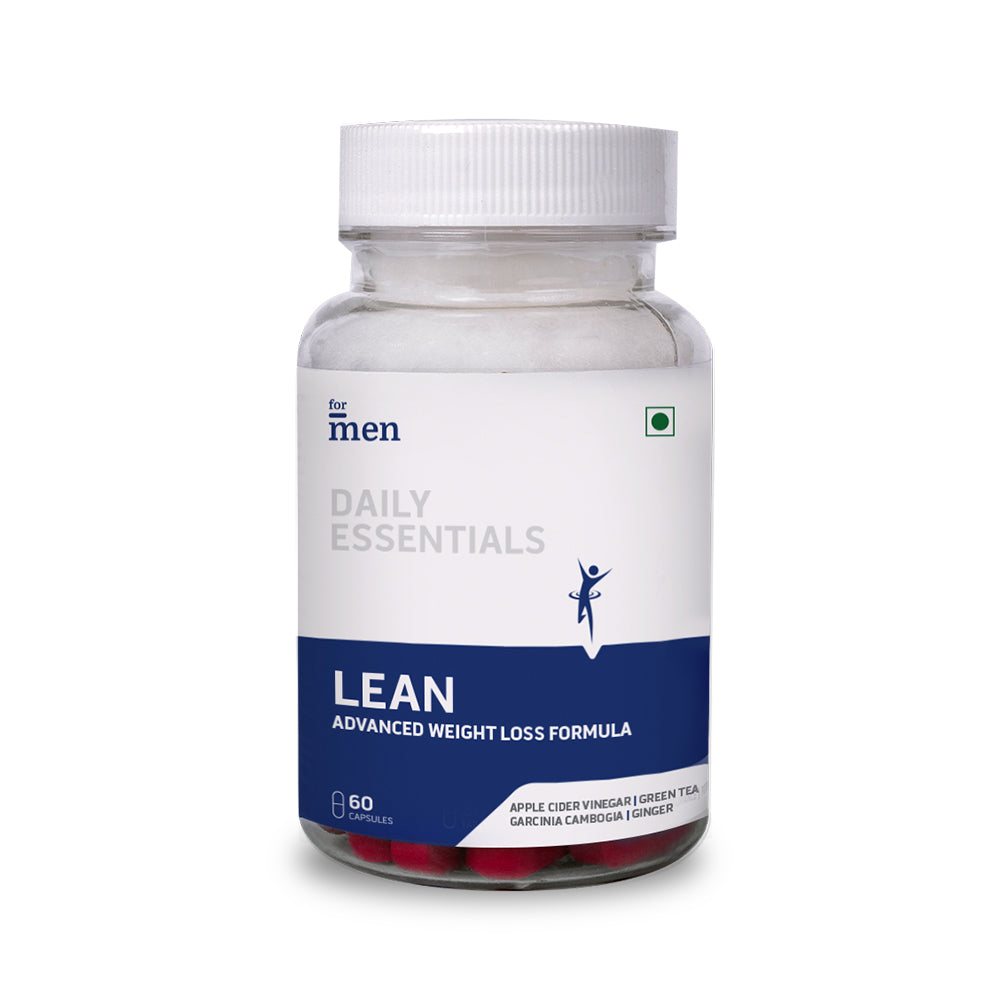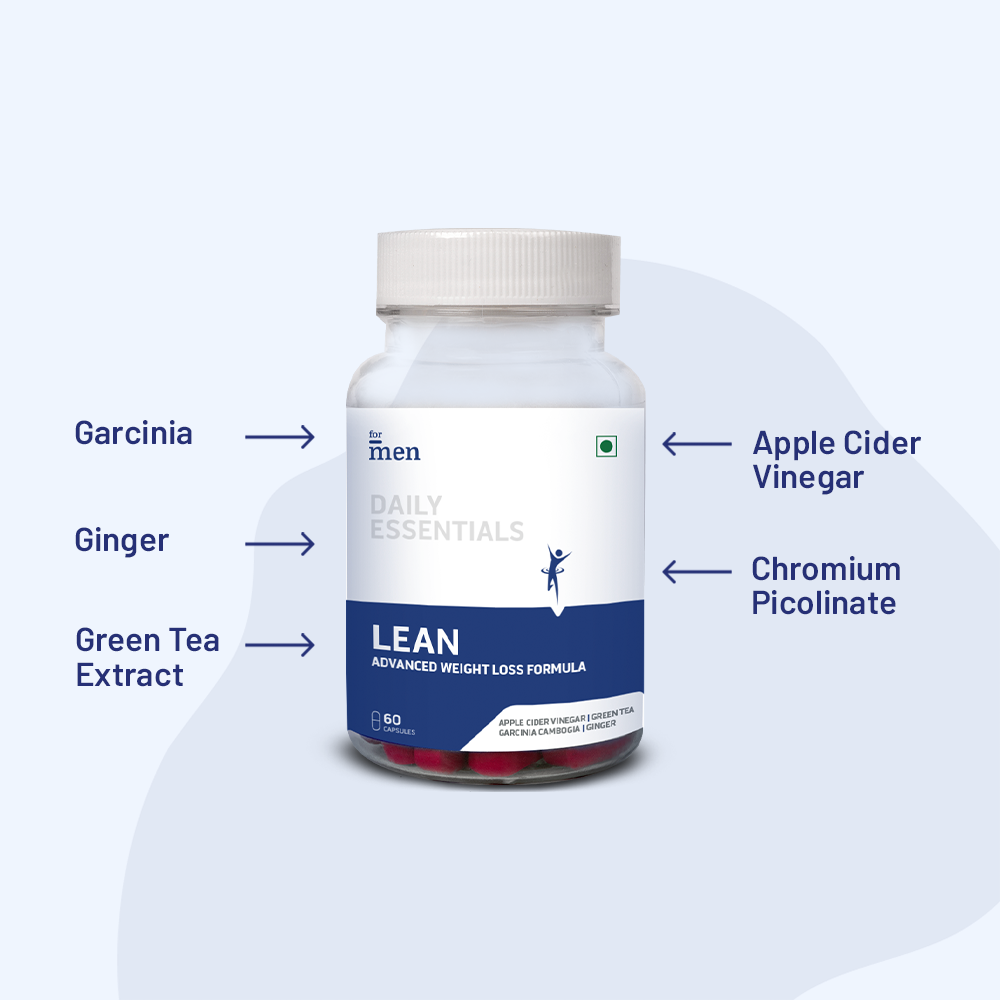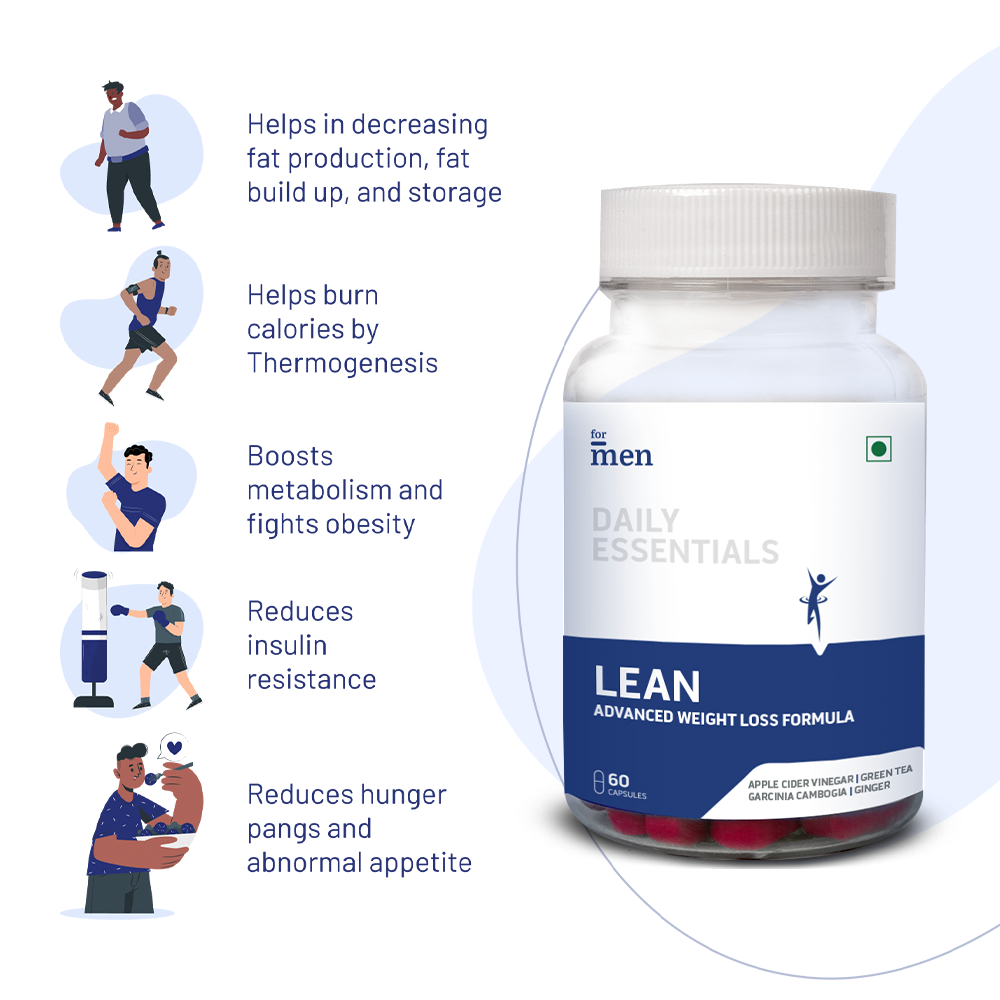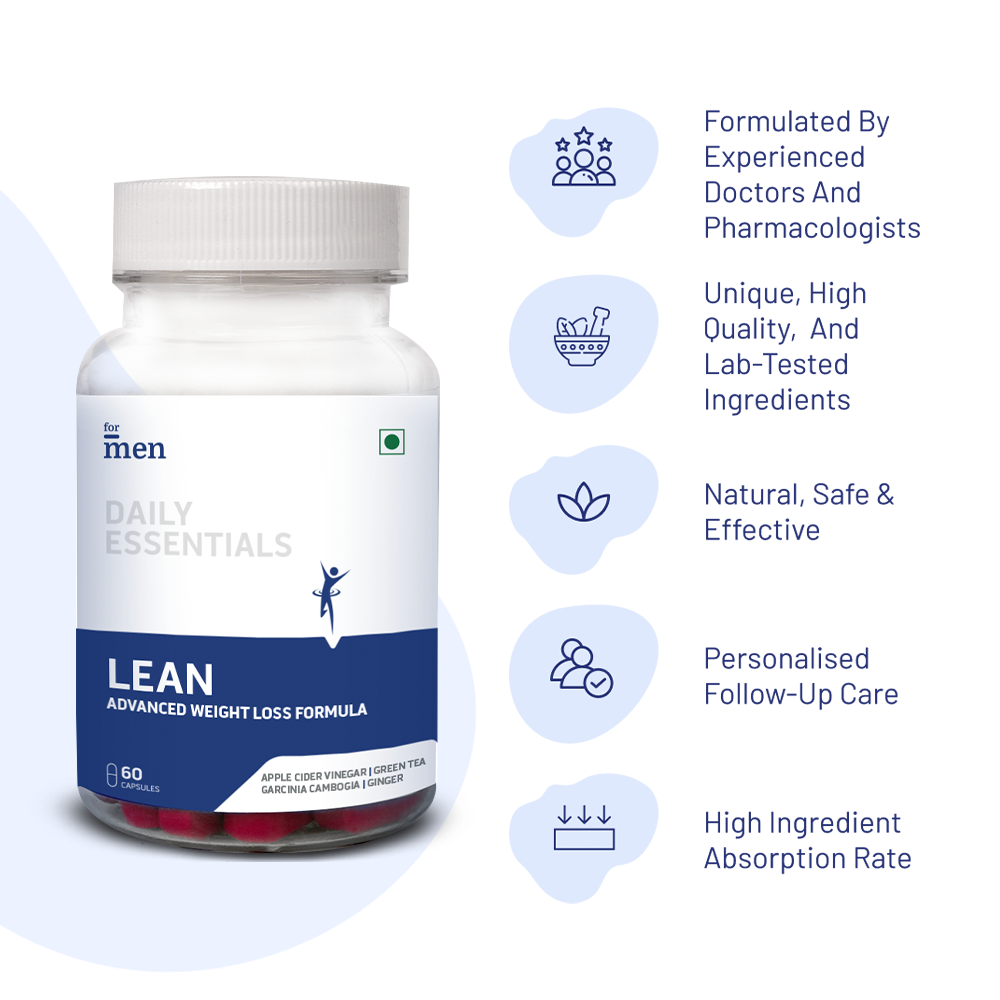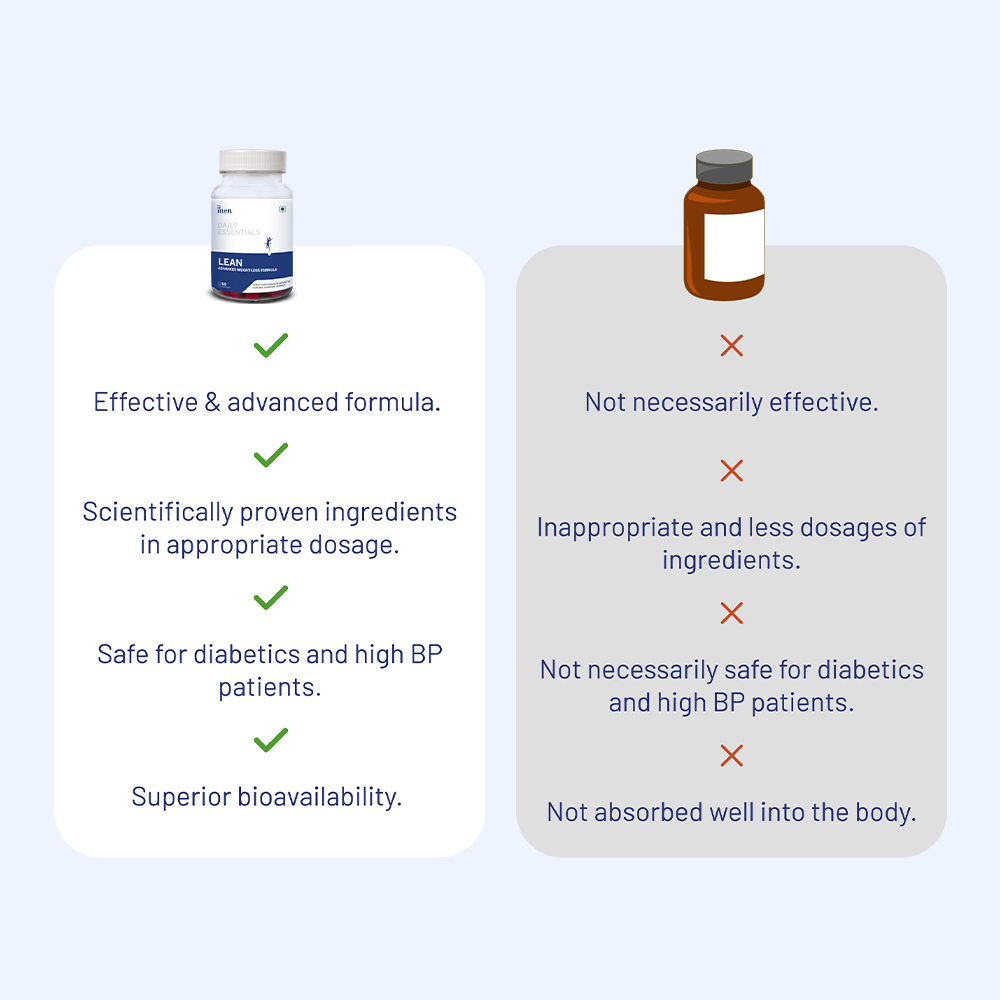Lean for Healthy Weight Loss
Lean is a unique blend of scientifically proven, enriched herbal extracts and minerals. It is proven to assist healthy weight loss by curbing appetite and promoting fat burn.
Helps reduce fat production and storage.
ForMen Lean Weight Loss Tablets Benefits
- Helps in achieving healthy weight.
- Keeps you fit and active.
- Specially formulated by Doctors & Pharmacologists for healthy weight management.
ForMen Lean Weight Loss Tablets Help with
-

Metabolism Boost
-

Reduces Hunger Pangs
-

Less Fat Production
How to Take Lean Weight Loss Tablets for Men?
- Take 2 capsules per day after food.
- Preferably to be taken in the morning & evening with a glass of water, or as per the Physician’s recommendation.
- Each bottle contains 60 capsules.
ForMen Lean Weight Loss Tablets Composition
| Ingredient | Content | %RDA |
|---|---|---|
| Garcinia Cambogia Extract | 480 mg | – |
| Asana | 300 mg | – |
| Green Tea Extract | 200 mg | – |
| Bioperine | 5 mg | – |
| Chromium | 40 mcg | 80 |
Pure, high-quality, lab-tested, effective ingredients sourced from the best locations.

Garcinia Cambogia Extract
Garcina can effectively suppress appetite, food intake, and reduce fatty acid synthesis, thereby promoting weight loss in adults. Some key Active components, extracted from the fruit's rind is the key for appetite-loss and fat burning properties.

Green Tea Extract
Green tea extract helps fight against harmful free radicals produced during infections. It also helps in reducing oxidative stress and inflammation.

Chromium Picolinate
Is known for its potential ability to regulate eating behaviour and food cravings, suppress appetite, stimulate thermogenesis, enhance resting energy expenditure and improves insulin sensitivity.

Apple Cider Vinegar
Helps boost metabolism, reduce fat storage and help fat burn. It also helps suppress appetite and decrease Insulin levels.

Ginger
Ginger contains compounds called gingerols, shogaols etc that stimulate several biological activities in your body. Ginger extract helps in body weight control, especially belly fat.
What does the doctor say!
Obesity is fast becoming an epidemic of alarming proportions. Being over-weight and obese leads to innumerable health issues. Obesity increases the risk of heart-disease, diabetes, stroke, infertility, certain types of cancers, liver problems, bone and joint issues. The risk of such problems increases as the duration of obesity and extra kilos increase. Diet plays an extremely key role in weight modulation followed by physical activity.
Dr. Chaitanya Gali















